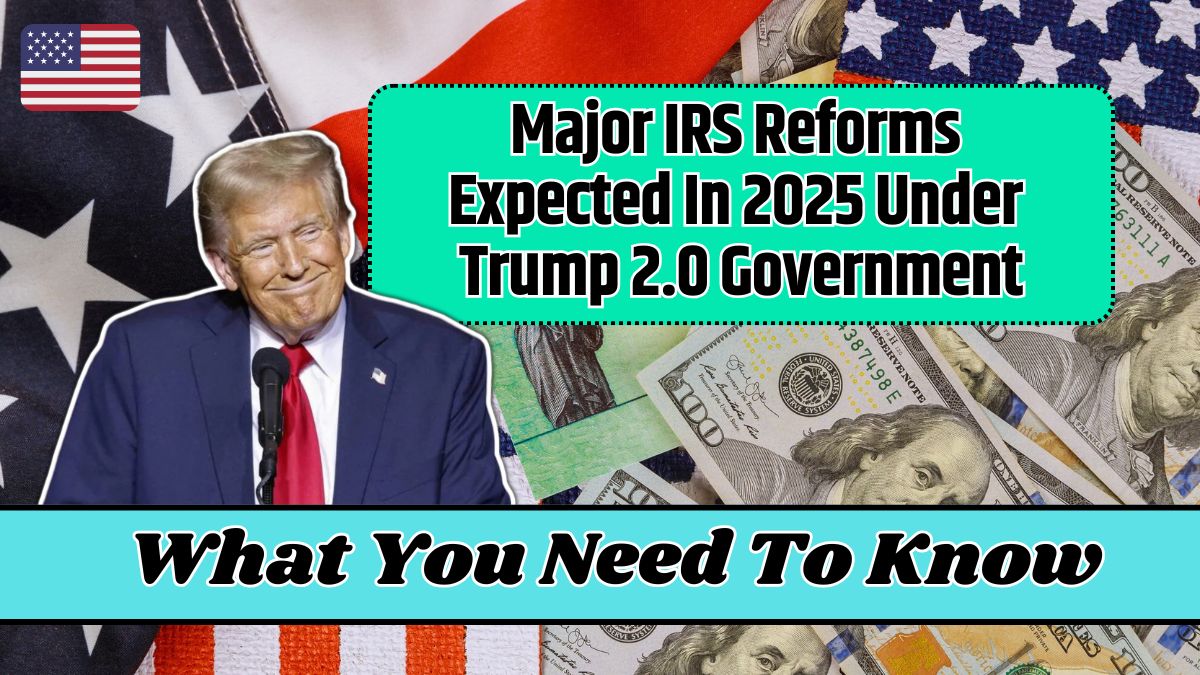With 2025 on the horizon, significant IRS reforms may take shape under a potential second Trump administration. These changes aim to simplify the tax code, modernize the IRS, lower corporate taxes, and revise wealth and estate tax policies.
Whether you’re an individual taxpayer or a business owner, understanding these potential reforms can help you prepare effectively and take advantage of new opportunities.
Key Reform Areas
| Reform Area | Potential Changes |
|---|---|
| IRS Modernization | Improved digital tools, faster refunds, automation |
| Tax Code Simplification | Fewer tax brackets, streamlined deductions |
| Corporate Tax Changes | Lower rates, extended tax cuts, enhanced incentives |
| Wealth & Estate Taxes | Higher estate tax exemptions, reduced capital gains taxes |
IRS Modernization: A User-Friendly Experience
The IRS is often criticized for inefficiency and outdated systems. Modernization efforts aim to leverage technology, making it easier for taxpayers to file returns, track refunds, and resolve issues online.
Expected Changes
- Automation: Faster processing and reduced errors through digital submissions.
- Online Portals: Expanded options to submit forms, check refunds, and manage accounts.
- Customer Service Improvements: Shorter wait times and quicker responses to inquiries.
Preparing for Modernization
- Go Digital: Transition to e-filing for faster and more accurate processing.
- Stay Informed: Follow IRS updates on new tools and systems.
Simplifying the Tax Code
The current tax code, filled with complex rules and deductions, overwhelms many taxpayers. Simplification could reduce the number of tax brackets, expand standard deductions, and streamline small business filings.
Possible Changes
- Fewer Tax Brackets: Consolidating brackets for easier understanding and compliance.
- Standard Deduction Increases: Reducing the need for itemization.
- Simplified Business Filing: Less paperwork and clearer rules for small businesses.
How to Prepare
- Understand Deductions: Familiarize yourself with standard deductions and credits.
- Track Filing Status: Monitor potential changes that may affect your taxable income.
Corporate Tax Reforms
Corporate taxes are a cornerstone of Trump’s tax agenda. Potential reforms in 2025 could make the 2017 Tax Cuts and Jobs Act’s provisions permanent, further lowering rates and simplifying deductions.
Expected Corporate Tax Changes
- Lower Tax Rates: Reduced rates to boost profitability.
- Deduction Simplification: Easier access to deductions, including capital investments.
- R&D Incentives: Expanded tax breaks for research and innovation.
Business Preparation
- Track Expenses: Ensure accurate documentation for deductions.
- Consult Experts: Work with tax professionals to navigate changes effectively.
Wealth and Estate Tax Adjustments
Wealth and estate tax reforms are expected to benefit high-net-worth individuals by reducing tax burdens on inheritances and investments.
Potential Reforms
- Higher Estate Tax Exemptions: Allowing more wealth to be passed to heirs tax-free.
- Capital Gains Tax Reductions: Encouraging long-term investments.
Preparing for Wealth Tax Changes
- Estate Planning: Consult an estate planner to optimize inheritance strategies.
- Portfolio Review: Work with financial advisors to adjust investments for maximum tax efficiency.
Impacts on Tax Professionals
Tax professionals will need to adapt to changes in filing processes, deductions, and compliance rules. While simplification might reduce filing complexities, corporate and estate tax reforms could require specialized advice.
Key Takeaways for Professionals
- Stay updated on policy changes.
- Shift focus from compliance to strategic advisory services.
Public Perception
While simplified taxes and lower rates are appealing to many, critics may argue these reforms disproportionately benefit wealthy individuals and corporations. Balancing modernization and fairness will likely be a contentious issue in public discourse.
The proposed IRS reforms for 2025 aim to create a more efficient and taxpayer-friendly system, benefiting individuals and businesses alike. By staying informed, embracing digital tools, and consulting tax experts, you can navigate these changes with confidence.
















